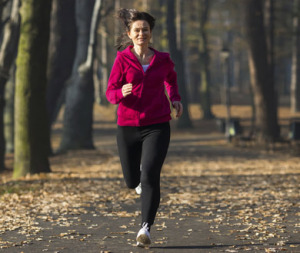 Why Your Fitness Age Matters More Than Your Chronological Age: You may be 55, but do you have the fitness level of a 35-year-old marathoner or a sedentary 75-year-old? The answer to “How Old Are You Really?” could surprise you.
Why Your Fitness Age Matters More Than Your Chronological Age: You may be 55, but do you have the fitness level of a 35-year-old marathoner or a sedentary 75-year-old? The answer to “How Old Are You Really?” could surprise you.
Researchers from the Norwegian University of Science and Technology developed the fitness age test in 2013. The test takes into account your respiratory health and is made up of various components including your heart rate, waist circumference, exercise routine, and more. The fitness age test predicts your VO2 max – how your body takes in and uses oxygen during exercise. This is typically seen as a marker of your cardiovascular endurance. The beauty of the test is you can take it without running on a treadmill — or doing any actual exercise pre-test.
 As cool as it sounds, you may ask does your fitness age matter? The New York Times reports that a prospective cohort study (published in Medicine & Science in Sports & Exercise) looked at data collected from more than 55,000 Norwegians and found a link between fitness level and longevity.
As cool as it sounds, you may ask does your fitness age matter? The New York Times reports that a prospective cohort study (published in Medicine & Science in Sports & Exercise) looked at data collected from more than 55,000 Norwegians and found a link between fitness level and longevity.
Participants with an average or above-average VO2 max (meaning their fitness age is younger than their chronological age), had a lower risk of premature death.
The researchers believe that cardiorespiratory fitness is a useful tool for identifying risk of cardiovascular disease.
 The updated “fitness age” calculator includes cardiovascular disease risk. Click here to take the test yourself. If you aren’t happy with your “fitness age,” doctors recommend you start exercising regularly now and incorporating more high-intensity intervals. You can significantly improve your fitness age in a short time by pushing yourself with high-intensity workouts.
The updated “fitness age” calculator includes cardiovascular disease risk. Click here to take the test yourself. If you aren’t happy with your “fitness age,” doctors recommend you start exercising regularly now and incorporating more high-intensity intervals. You can significantly improve your fitness age in a short time by pushing yourself with high-intensity workouts.
Optimum Amount of Exercise
The good news is, performing a few hours of exercise weekly can help you live longer. Doing a whole lot more exercise doesn’t provide much extra benefit, according to a study on physical activity and longevity. The people most likely to benefit from an increased amount of exercise are those who do not currently do any.
Exercise helps increase metabolism and builds muscle mass.
Exercise can improve the quality of your sleep.
Exercise relieves stress and produces endorphins, which can reduce symptoms of depression, sadness and anxiety.
Exercise can reduce the impact of illness and improve your immune and digestive functioning.
Exercise improves strength, flexibility and posture.







